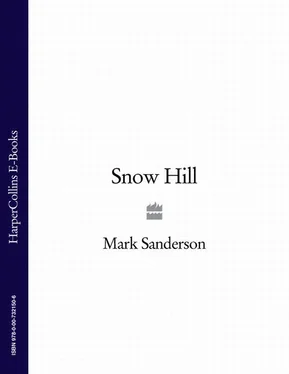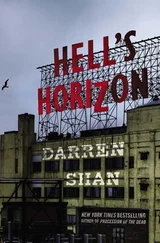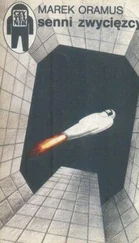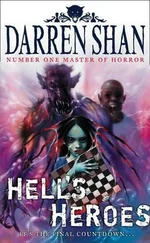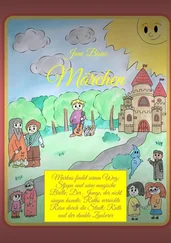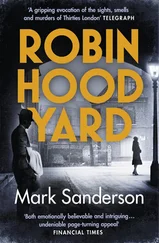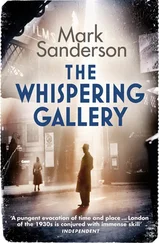He stared at the piece of paper. Those seven words hinted at so much and revealed so little. Mishap or murder? True or false? Could it be one of Simkins’ tricks? Johnny dismissed the idea; it wasn’t Simkins’ style. Besides, even though he had so little to go on, there was something about this tip-off that made his nerves tingle. Something told him this was genuine.
“What you got there, Coppernob?”
Startled, Johnny looked up. Bill was swaying down the aisle towards him.
“Something or nothing. I can’t decide,” he said, handing over the flimsy slip of pink paper. “For your eyes only.”
“Say no more,” said Bill. A blast of beery breath hit the back of Johnny’s neck. “Very interesting.”
“I’ve just asked Inspector Rotherforth if he’s lost a man, but he said the suggestion was—and I quote—‘balderdash’.”
“Well, he would, wouldn’t he?” said Bill.
Johnny could almost hear the liquid lunch sloshing around in his stomach.
Bill handed back the message. “I’ll make a couple of calls.”
“Thank you.” Johnny checked his watch and began gathering up his things. “It’s time I got back to court.” His voice was heavy with resignation: the mere thought of sitting in those punishing pews made his backside ache.
“Very well.” Bill dropped into his battered chair. As always, it rocked alarmingly, on the verge of tipping over backwards, then somehow defying gravity to remain upright. “Off you go then.” He sighed heavily. “You know where I am if you need me.”
Putting his feet up on the desk, Bill watched as his protégé scurried out of the office. A frown spread across his crinkled face. As soon as Johnny was out of sight, he picked up the telephone receiver.
Monday, 7th December, 8.30 p.m.
Lizzie was waiting on his doorstep. This was a pleasant surprise. His thoughts had been taken up with Daisy, wondering whether he should nip round to explain face to face that he’d arranged to spend tomorrow evening with Matt instead of taking her to the show, debating whether she could be persuaded to let him make it up to her tonight. Seeing Lizzie, he felt a stab of guilt and then mentally scolded himself: you could not be unfaithful to a fantasy. Mrs Matt Turner was, and always had been, strictly out of bounds.
“Come on! Open the door,” she said, brushing off his attempt to kiss her. “I’m half-dead with cold, standing out here. Been at that flea-pit again?”
She meant the Blue Hall Annexe on the corner of Packington Street. The cinema had started life as a district post office before being converted into the Coronet. Twenty-five years on, its four onion-domes remained but the blue-and-gold tiled façade had worn as thin as the velveteen covering the oversprung seats inside. The only thing the new owners had changed was the name.
The little cinema was a favourite haunt of Johnny’s, his mother having introduced him to the delights of the silver screen back in the days when talkies were still a novelty. As a boy, he’d been fascinated by the actors who’d sometimes appear during screenings, striking up conversations with members of the audience. He remembered one paid stooge who always seemed to mangle his lines and would invariably end up being pelted with peanuts. It wasn’t until years later that Johnny learned the man had a habit of preparing for his appearances by nipping into the Queen’s Head next door for a quick one, or two, to steady his nerves.
Lizzie made her way straight through to the kitchen and Johnny followed, turning on lights and through force of habit switching the wireless on. “The Way You Look Tonight” came warbling out. He filled the battered kettle, lit the gas and set it on the stove.
“What did you see?” she asked, sitting down at the table with her coat still wrapped around her for warmth.
“ Bullets or Ballots . A gangster pic. Edward G. Robinson, Joan Blondell and Humphrey Bogart.”
“Any good?” She was toying with her gloves. Johnny could see she was nervous. Why? Was it because she was uncomfortable being alone with him nowadays? She knew his feelings for her had not changed when she’d married Matt.
“The action sequences were great: tommy-guns spitting fire everywhere. Robinson plays a detective called Johnny Blake who feigns dismissal from the force so that he can go undercover to smash a major crime ring.”
Johnny had been a fan of Robinson’s ever since he’d seen him in Five Star Final, playing a ruthless editor whose investigation of a murder case drives two of those involved to suicide. Earlier that year he’d gone along to see the remake, Two Against the World , with Bogart in the starring role, but it wasn’t a patch on the original. The focus had been shifted to the goody-goodies who thought the story should not be published, and the worthy result had only provoked yawns.
Hollywood had nurtured Johnny’s ambition to be a journalist. It set him dreaming of a global exclusive where he’d interview Al Capone through the bars of his tiny cell in Alcatraz. He did not care if cinema was “neither art nor smart”: it offered a picture window into other people’s lives. Movies could provide an escape from reality or turn powerful searchlights on it. The same could be said of the press—and Johnny’s sense of fair play made him determined to use that power to right wrongs. Social inequality made his blood boil. What was so bad about making breakfast stick in the throats of the bourgeoisie when many children did not have their first meal till midday?
“You might as well tell me the ending,” said Lizzie. “It’ll save me going to see it.”
“Robinson gets a bullet in his belly.”
“Now there’s a thing—especially since I’ve got something in mine. Well, more or less. I’m pregnant.”
Johnny, who was spooning tea into the pot, froze. He turned slowly. Lizzie was regarding him quizzically, trying to gauge his reaction.
“Lizzie, that’s wonderful news!” He bent down and kissed her on the cheek. This time she did not shy away.
“Is it?” Her brown eyes blazed.
What was she so angry about? Even as he registered her mood he couldn’t help thinking how beautiful she was. No one else made his heart leap the way she did.
“Of course it is. Unless…you don’t you want it?”
Lizzie, much to the annoyance of her long-suffering parents, was an independent woman who knew her own mind. They thought their one and only daughter had married beneath her—Matt was a good chap, salt of the earth, but indisputably working class. What’s more, they seemed to think she’d done it just to spite them. Johnny knew better.
She had once told him that it had been love at first sight: He seemed so comfortable in his own skin . She knew instinctively that Matt was a man who could look after her and who would be a wonderful father to the children he gave her. His good looks were almost an irrelevance—but not quite. She still got a thrill each time she set eyes on him. As for Matt, it had never occurred to him that she might be out of his league. He had the confidence of a natural athlete, one who was used to setting goals and achieving them.
Johnny recalled only too well the moment he had grasped how true and deep their love was. The realisation had crushed him.
It had taken Lizzie ages to persuade her father, a surgeon, to give his consent to the morganatic marriage—let alone allow her to get a job. Her mother, a raging snob, still disapproved of both. They were the sort of people who took a hotel room to afford themselves an excellent view of the Jarrow marchers as the “agitators” had reached the end of their 291-mile journey. Lizzie was outraged that the public had only donated £680 to the demonstrators and thought it obscene that people should sip champagne while unemployed men fought for an opportunity to put food on their families’ tables.
Читать дальше
